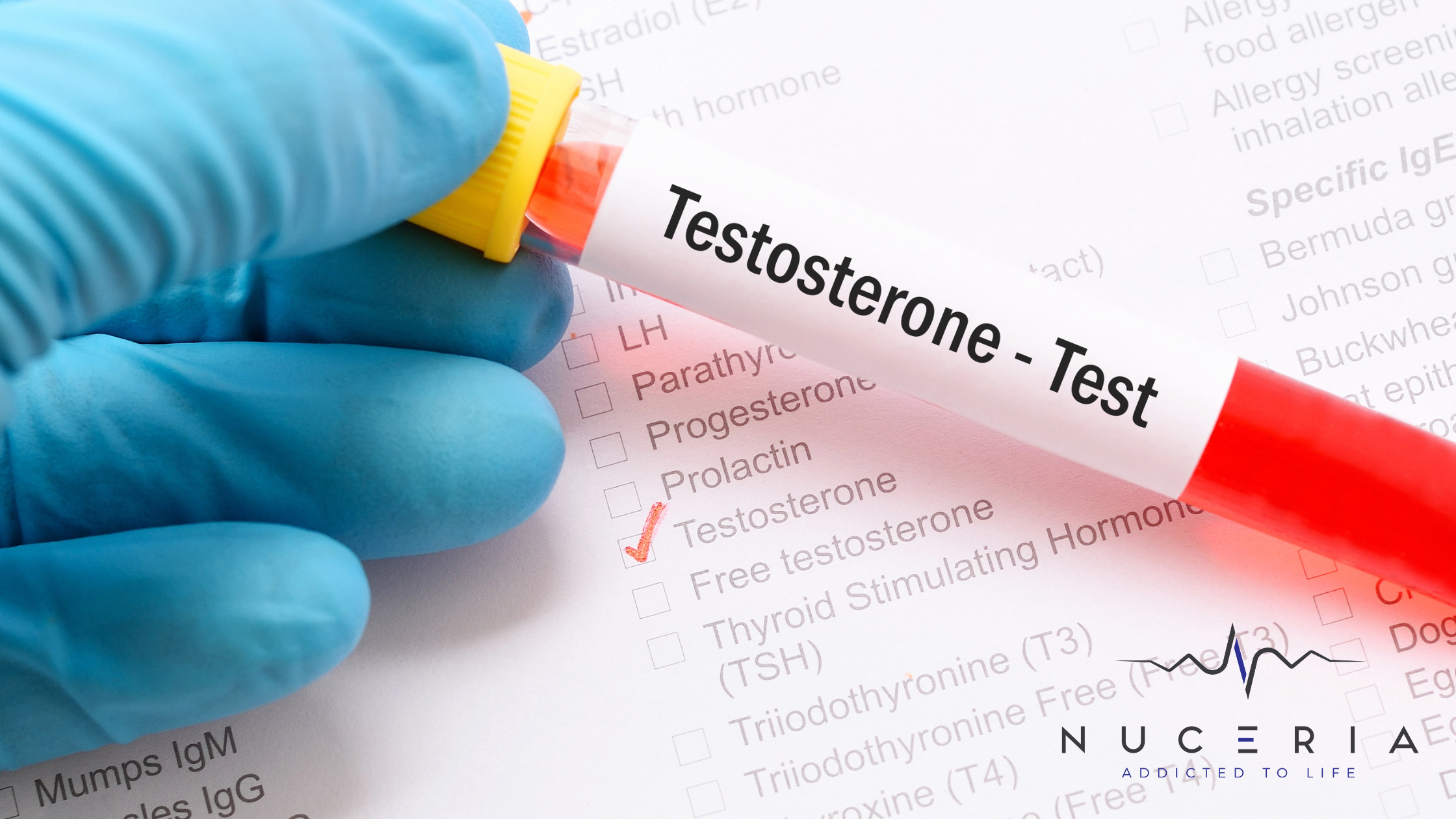Understanding the Impact: PCOS
PCOS emerges as a notable public health concern, standing as one of the prevalent hormonal disruptions that significantly impact women of reproductive age. It is estimated to affect approximately 8–13% of women in this demographic, with a staggering 70% of cases going undiagnosed.
Certain ethnicities bear a higher burden of PCOS prevalence, often facing elevated risks and complications, particularly in connection with metabolic issues. This highlights the problem's widespread nature and underscores the need for targeted interventions within specific communities.
Beyond the physical ramifications, the far-reaching implications of PCOS extend into the realms of mental health and societal perception. The interplay of biological and psychological effects, especially concerning factors like obesity, body image, and infertility, can precipitate mental health challenges. Additionally, individuals with PCOS often grapple with social stigma, further amplifying the complexity of the issue.
In this article, we delve into the scope of the PCOS problem, recognizing that addressing the medical aspects and associated mental and social dimensions is crucial for comprehensive and empathetic healthcare solutions.
Demystifying PCOS: What is it, anyway?
PCOS is a common hormonal disorder. The exact cause is still a bit of a puzzle, but it often involves an imbalance in reproductive hormones. The ovaries may develop small collections of fluid, known as cysts, which can lead to a range of symptoms.
Unraveling Different Types of PCOS
Polycystic Ovary Syndrome (PCOS) is a complex spectrum of conditions, each with its distinctive features. Let's delve into the mosaic of PCOS by exploring its diverse types:
1. Type A - Full-Blown PCOS: The Classic Presentation
It embraces the hallmark trio of irregular periods, elevated androgen levels, and small cysts on the ovaries. Ovulation challenges often accompany this type, contributing to the irregular menstrual cycles that characterize PCOS.
2. Type B - Non-PCO PCOS: A Hidden Variant
Type B, or Non-PCO PCOS, is a more discreet form of the syndrome. Individuals with this type may not exhibit visible ovarian cysts on ultrasound, yet they experience hormonal imbalances typical of PCOS. Diagnosis requires a nuanced approach, as the symptoms may not align with the traditional criteria.
3. Type C - Ovulatory PCOS: A Different Rhythm
In this variant, ovulation may occur, differentiating it from the more common PCOS presentations. However, other symptoms like irregular periods and hormonal imbalances persist, making it a unique subtype that demands specific attention in diagnosis and management.
4. Type D - Non-Hyperandrogenic PCOS: A Hormonal Puzzle
Type D, or Non-Hyperandrogenic PCOS, places the focus on hormonal nuances. While individuals with this type may not exhibit the classic signs of elevated androgen levels, they still grapple with irregular periods and potential metabolic challenges associated with PCOS. This variation requires a careful examination of hormonal profiles for accurate diagnosis.
Casually, you might catch people using different expressions to talk about it, referring to either what triggers it or the signs and symptoms it brings about:
1. Classic PCOS: The Trio of Symptoms
This is the archetype, the classic PCOS that introduces itself with the triumvirate of irregular periods, elevated androgen levels, and small cysts on the ovaries. Individuals with classic PCOS often experience challenges with ovulation, leading to irregular menstrual cycles.
2. Insulin-Resistant PCOS: The Metabolic Twist
In this variant, insulin resistance takes center stage. The cells in the body become less sensitive to the hormone insulin, which results in higher insulin levels in the bloodstream. This insulin resistance not only contributes to weight gain but can also exacerbate the hormonal imbalances associated with PCOS.
3. Inflammatory PCOS: The Immune Connection
Inflammation becomes a key player in this type of PCOS. The body's immune response kicks into high gear, leading to elevated inflammatory markers. This chronic inflammation can further disrupt hormonal balance, impacting various reproductive and metabolic health aspects.
4. Hidden PCOS: Asymptomatic Yet Present
Some individuals with PCOS may not display the typical symptoms like irregular periods or acne. However, they might still have polycystic ovaries visible on ultrasound. This hidden PCOS variant requires a keen eye from healthcare professionals for accurate diagnosis.
5. Non-Classic PCOS: Unusual Symptomology
In this variation, individuals may experience atypical symptoms that don't neatly fit the classic PCOS criteria. These could include unique combinations of hormonal imbalances, making diagnosis and management more intricate.
6. Post-Pill PCOS: The Aftermath
Sometimes, PCOS symptoms may become apparent after discontinuing hormonal contraceptives. This type is often referred to as post-pill PCOS. The body may take time to readjust, revealing underlying hormonal imbalances.
PCOS: Understanding the Symptoms
Ever felt like your body is playing a game of hide and seek with your well-being? If irregular periods, unexpected acne outbreaks, and mood swings are the players, you might be dealing with Polycystic Ovary Syndrome or PCOS. Let's thoroughly stroll through the symptoms to demystify this hormonal adventure.
Irregular Periods - The Unpredictable Orchestra
Imagine your menstrual cycle as a well-rehearsed orchestra, each instrument playing harmoniously. In PCOS, it's more like a lively jazz performance—full of surprises. Irregular periods are a common telltale sign that your hormonal symphony might be dancing to its rhythm.
Acne: The Unwanted Party Crasher
Remember the days of adolescence when acne was a rite of passage? Well, for those with PCOS, the party might decide to linger a bit longer. Hormonal imbalances can trigger acne breakouts but fear not, and skincare routines can help manage these uninvited guests.
Weight Gain: The Stealthy Sidekick
Weight gain might sneak in as a sidekick on the PCOS journey. Insulin resistance, often associated with PCOS, can make weight management a tad trickier.
Mood Swings: The Rollercoaster Ride
Picture this: one moment, you're on cloud nine, and the next, you're in the depths of the sea. PCOS can bring along mood swings, turning your emotional landscape into a rollercoaster ride. Don't worry; understanding these shifts is the first step to managing them.
Hair Woes: The Hairy Situation
Excessive hair growth in unexpected places (like your face) or hair loss on the scalp can be part of the PCOS package. It's just your body reacting to those hormonal twists and turns. Hair removal techniques and styles can help you feel in control.
Fatigue: The Sneaky Saboteur
Ever feel like you need a nap just after waking up? PCOS-related fatigue might be the culprit. Hormonal imbalances can leave you feeling more tired than usual. Listen to your body and indulge in some self-care.
Fertility Challenges: The Bump in the Road
For those dreaming of parenthood, PCOS can add an extra layer to the Journey. Conceiving with irregular ovulation can be challenging. However, with proper guidance, individuals with PCOS can have successful pregnancies.
The Takeaway: You're Not Alone
Remember, experiencing one or more of these symptoms doesn't mean you're on this Journey alone. PCOS is a shared adventure, and a community of support is ready to cheer you on.
If you resonate with these symptoms, consider contacting a healthcare professional.
The Causes of PCOS
Genetic Marvels: The Family Connection
Picture your genes as the storytellers of your family saga. Sometimes, PCOS decides to join the narrative, passed down through generations like a shared tale. If you have relatives with PCOS, consider it a genetic twist in the family plot.
Insulin Resistance: The Blood Sugar Tango
Enter insulin, the blood sugar maestro. In PCOS, the body might decide to play hard to get, resisting the charms of insulin. This resistance can cause an increase in insulin levels in the blood, leading to a hormonal cascade that contributes to PCOS.
Hormonal Hijinks: Androgens Take Center Stage
Meet androgens, the hormones responsible for the characteristics we often associate with masculinity. In PCOS, these hormones sometimes decide to throw a party, disrupting the delicate balance in the hormonal playground. This hormonal misalignment can lead to the symptoms we associate with PCOS.
Inflammation: The Body's Symphony Gone Awry
In a well-orchestrated symphony, inflammation can be the off-key note. For individuals with PCOS, elevated levels of inflammation may come into play, adding an extra layer to the hormonal dance. Keeping inflammation in check through a healthy lifestyle can be your secret weapon.
Lifestyle Factors and PCO
Lack of exercise, poor nutrition, and stress can step into the spotlight, influencing hormonal imbalances and exacerbating PCOS symptoms. The good news? Lifestyle changes can be your dance partners in managing PCOS effectively.
The Marvelous Mix: Your Unique Story
Here's the kicker – PCOS often results from a combination of these factors, creating a unique story for each individual. Your PCOS journey is like no other, and understanding the causes is the first step in crafting a personalized plan for managing and thriving.
Potential Complications of PCOS
It's crucial to shed light on the potential complications that might be lurking beneath the surface. Don't worry; you can face these challenges head-on armed with knowledge. Let's explore the friendly side of understanding PCOS complications.
1. Fertility Fables: Unraveling the Journey to Parenthood
If you've dreamt of starting a family, PCOS might add an extra chapter to your story. Irregular ovulation, an everyday PCOS companion, can make conception more intricate. The good news? With the proper support and guidance, many individuals with PCOS successfully navigate the path to parenthood.
2. Metabolic Maze: Navigating Insulin Resistance
PCOS and insulin resistance often go hand in hand, creating a metabolic maze. Insulin, the blood sugar maestro, may struggle to play its tunes effectively. This can lead to heightened blood sugar levels, potentially paving the way for diabetes. Fear not! Lifestyle adjustments and proactive health measures can be your allies in managing insulin resistance.
3. Cardiovascular Chronicles: The Heart of the Matter
PCOS has been known to have a friendly chat with your cardiovascular health. Insulin resistance and hormonal imbalances may tip the scales toward elevated blood pressure and unhealthy cholesterol levels. Keep your heart in mind, and embrace heart-healthy habits to keep the beat going strong.
4. Mood Swings and Mental Health: Riding the Emotional Rollercoaster
Beyond the physical, PCOS can also influence your emotional landscape. Mood swings, anxiety, and depression may join the hormonal rollercoaster ride.
5. Endometrial Experiences: Insights into Uterine Health
Irregular periods, a hallmark of PCOS, can impact the lining of the uterus. Without regular shedding, the endometrium might build up, potentially increasing the risk of endometrial cancer. Regular check-ins with your healthcare provider and staying attuned to your body's signals can contribute to a proactive approach to uterine health.
6. Sleep Struggles: The Dance with Insomnia
Ever find yourself in a nighttime tango with insomnia? PCOS may contribute to sleep disturbances, adding an extra layer to your bedtime routine. Prioritizing good sleep hygiene and seeking professional guidance if needed can be your allies in achieving restful nights.
PCOS and Fertility
If you're on the Journey of understanding PCOS and its connection to fertility, you're not alone. Let's explore the friendly nuances of how Polycystic Ovary Syndrome can impact fertility and, more importantly, how to navigate this path with hope and resilience.
1. The Fertility Puzzle: PCOS as a Piece
PCOS can add an extra piece to the fertility puzzle. Irregular ovulation, a common hallmark of PCOS, can make conceiving a bit more intricate. Think of it as your body dancing to its unique rhythm, sometimes making the Journey to parenthood more nuanced.
2. Understanding the Ovulation Opera
In a typical menstrual cycle, ovulation is the star of the show. With PCOS, this star might take an occasional intermission. The irregular release of eggs makes timing conception more challenging. But don't fret; with the right tools and support, many individuals with PCOS successfully navigate the ovulation opera.
3. Partnering with Fertility Specialists: Your Allies in the Journey
Fertility specialists are like expert guides on your fertility adventure. These professionals can clarify if the conception path seems like a maze. From ovulation-inducing medications to assisted reproductive technologies, a fertility specialist tailors strategies to fit your unique needs.
4. Lifestyle as a Fertility Palette: Paint Your Wellness Picture
Your lifestyle choices can be the palette that paints your fertility landscape. Embrace a balanced diet, regular exercise, and stress management as your brushes. These lifestyle choices not only support overall health but can also positively influence your fertility journey.
5. Emotional Waves: Riding the Rollercoaster
Navigating PCOS-related infertility can bring a mix of emotions – from hope and anticipation to moments of frustration. Recognize that these emotions are part of the Journey. Seek support from friends, family, or mental health professionals to ride the emotional rollercoaster with resilience.
6. Patience and Positivity: Your Greatest Allies
In fertility, patience and positivity are your greatest allies. Celebrate the small victories, practice self-compassion on challenging days, and remember that the Journey to parenthood is as unique as yours.
Guide to Treating PCOS
Let's stroll through some friendly approaches to treating PCOS, embracing a holistic perspective that combines lifestyle, support, and a dash of self-love.
1. Lifestyle Love: The Foundation of PCOS Management
Picture your lifestyle as the canvas of your masterpiece of well-being. Embracing a balanced diet and regular exercise are vital brushstrokes in managing PCOS. Opt for whole foods, fiber-rich delights, and a rainbow of fruits and veggies. Exercise can be your body's best friend, be it a dance party or a nature walk.
2. Medications: Allies in the PCOS Journey
Sometimes, your body needs extra support, and that's where medications come into play. Birth control pills can help regulate your menstrual cycle and manage androgen levels. Metformin, a drug often used for diabetes, might be prescribed to tackle insulin resistance.
3. Nutritional Know-How: Crafting a PCOS-Friendly Plate
Consider your plate as a canvas for PCOS-friendly nutrition. Incorporate foods rich in omega-3 fatty acids, like salmon and chia seeds, to support hormonal balance. Choose complex carbohydrates, lean proteins, and healthy fats as your palette, creating a nourishing masterpiece for your body.
4. Mindfulness Magic: Stress as the Friendly Foe
tress can be a bit of a trickster when it comes to PCOS—incorporating mindfulness practices, whether meditation, yoga, or deep-breathing exercises, can be your secret weapon. This not only helps manage stress but also contributes to hormonal harmony.
5. Support Squad: The Power of Connection
PCOS is not a solo adventure. Build your support squad – friends, family, or online communities who understand your Journey. Sharing experiences and learning from others can be both comforting and empowering.
6. Fertility Friendly: Navigating Parenthood Dreams
If starting a family is on your horizon, make sure to prevent PCOS from being a roadblock. Fertility treatments, ovulation-inducing medications, and lifestyle adjustments can be part of your toolkit. Connecting with a fertility specialist can provide personalized guidance on your path to parenthood.
7. Regular Check-Ins: Partnering with Your Healthcare Team
Think of your healthcare team as your wellness co-pilots. Regular check-ups with your gynecologist, endocrinologist, and nutritionist can ensure that your treatment plan is tailored to your changing needs.
In Closing: Embracing the PCOS Journey
Polycystic Ovary Syndrome (PCOS), it's clear that this path is one of diversity and resilience. Every twist and turn reveals challenges and triumphs, from the symphony of symptoms to the underlying causes, the potential complications, and the nuanced impact on fertility.
PCOS is not merely a diagnosis; it's a journey, and each individual's experience is as unique as their fingerprint. It's a journey marked by understanding, where symptoms serve as signals and causes weave into a complex tapestry. Complications, though present, become growth opportunities, and the quest for parenthood emerges as a testament to unwavering determination.
In this concluding chapter, let's celebrate the strength of navigating PCOS. Armed with knowledge, supported by the community, and guided by healthcare professionals, individuals embarking on this Journey possess the resilience to shape their narrative. The destination may be ever-evolving, but the empowered navigation of the PCOS journey is a triumph in itself.
Request an appointment here: https://mynuceria.com or call Nuceria Health at (305) 398-4370 for an appointment in our Miami office.
Check out what others are saying about our services on Yelp: Wellness Center in Miami, FL.







